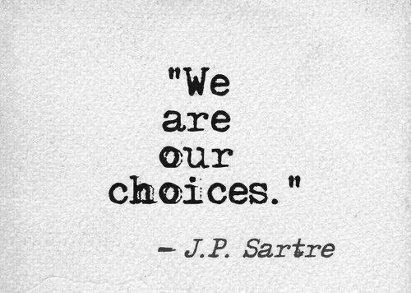Existential coaching

From the internet: « There are two ways to cope with existential panic: do what you love everyday or copious alcohol abuse . »
A new Year. With my small circle of friends, we closed 2020 and celebrated the new year with bubbles and this Dutch traditional pastry called oliebollen, a fried ball of dough which fills the stomach and soul with a greasy sensation of plenty. And to mark the moment we all had our words about what made 2020 and what were our expectations and hopes for 2021. Endings and beginnings. We honored the cycle of life. I want to express below what my hopes are when it comes to coaching and walking along my clients as we are having a conversation we never had before.
I have recently met two very different people in my life. The first is the heir of a rich family, extremely intelligent, brilliantly graduated from the best universities. This person has received a strong hand of cards in life. Yet he is confronted head-on with the question of finding a purpose for himself, maybe even more so as the most primary objectives of economic survival have been fulfilled before he could even start getting involved. And this notion of purpose brings along a strong anxiety about choice, freedom and the meaning of things. The second person is fighting for his life as he is trying to enter Europe after already one year of travel, bringing him from the war in Syria, to Lebanon, Turkey, Greece and now the border of Hungary. His father was shot by the regime. His family lost all their belongings to defend their lives. His struggle is made of the absurdity and meaninglessness of our rules and the deadly cat and mouse play he has to accept at our borders while his demands for asylum would pass any tests of what we call human rights. Both are strong albeit opposite manifestations of existential themes in our lives. Both are affecting deeply the way I am looking at resilience, at purpose, at choice in the face of absurd outcomes, at congruence and meaning in our lives.
Meanwhile, as I am just over 3 years into my coaching practice, I am blessed with enriching encounters. I sometimes ask myself who is benefiting most: me or my client? I, for sure, am learning every day. Recently, however, I have become aware that our look at what is there can be narrow, as we are unconsciously or by contract, circumscribing our landscape to only a part of our reality. My main activity so far has been into Executive Coaching, which, by convention, is focusing on the professional life of my client. And, although I carefully enquire about what my client is « bringing along », what is on his mind, we are both happy to talk mostly about work. The experiments we devise to better understand what is there, or to bring some change into what seems stuck, are all geared towards that very piece of my client’s life.
By and large, my clients are happy they get to reflect on their being at work. It is a comfortable, coded, contractual environment where they have been vested with a purpose and are applying themselves at doing a good job. It is a safe territory, a sort of playground where a lot of the things we call goals and objectives are really a pale reflection of their more fundamental cousins, the existential drivers. At work, we talk about vision, strategy, purpose and goals and how to share those with our colleagues and create conditions where the team can thrive and perform better. But talking about these, we seem to be distracted from what life is really about: death, life, freedom, aloneness and the fundamental difference that is: the other. And so, I sometimes find myself celebrating with my client a piece of work we did and how it did bring some new understanding of her situation at work, but cannot stop myself thinking we haven’t really started the work she could really benefit from. As I see her looking with some disbelief at what has really been achieved, I can hear her thinking: this will not alleviate the fatigue and desperation I find myself into, week after week of so many hours of hard work, with so many battles fought, so many conflicts faced, so little reasons to really be happy with my life. But as we either haven’t contracted for that or because we let ourselves be led by the artificial compartmenting of our lives, I keep to my role as an Executive Coach and she keeps to her working space. And so we both fail to really look at what is there.
Thankfully, I have a solution for this. At Ashridge , blessed be my teachers, we used to agree that, while the relationship established with the client, through the chemistry, through contracting, through the building of our working alliance, should always prevail, this relationship also demands that I take my whole self to our encounter. It is this encounter that makes change possible. It is the working of a dialogue between two beings that are fundamentally different and are genuinely engaged into the act of listening and tuning themselves to what the client is reflecting on. In this operation, as a coach, I must not hold back anything of what makes me. I must let myself, as my instrument, resonate fully with what the client is bringing. And therefore, when my client is happy with the results of her work experiment, but not with how this is actually impacting her life, I must listen to that too, and see how it resonates with what I believe to be existential topics my client is confronting.
And so I must break with the traditional boundaries of Executive Coaching and accept that we will, if what is there so demands, that our coaching will explore those more fundamental issues that I have called existential, because I hear how they are resonating in our work together. I have undertaken to deepen my understanding of existential issues, through the reading of Yalom , Frankl , May , Van Deurzen , and confronting the topics of death, freedom, aloneness, meaninglessness. I want to bring these topics into the coaching room, or rather let them exist, as they are the very background of our existence. I have been and am still every day struggling with these notions and how they are driving my choices and my efforts to be congruent with myself. And these choices are equally driving my clients, whether it is in their awareness or more subconsciously. Ignoring these topics is isolating ourselves from what they have to tell us as we are looking at what is there.
And as I am looking back today, at the beginning of this new year, at my coaching experience and how it blends with my own personal life, it feels good and coherent to incorporate all these dimensions of myself into my coaching, and to bring myself to the coaching relation, resolutely accepting that existential matters will be part of what is here. 2021 promises to be an exciting year indeed. Happy New Year!
1. Ashridge Coaching Programme
2. Irvin Yalom (1931): Existential Psychotherapy, Library of Congress Cataloguing in Publication Data, USA.
3. Viktor E. Frankl (1959) : Man’s Search For Meaning, The Random House Group Limited, UK
4. Rollo May (1981) : Man’s search for Himself, WW Norton & Company Inc, USA
5. Emmy Van Deurzen and Claire Arnold-Baker (2005) : Existential Perspectives on Human Issues, Palgrave MacMillan, UK.

